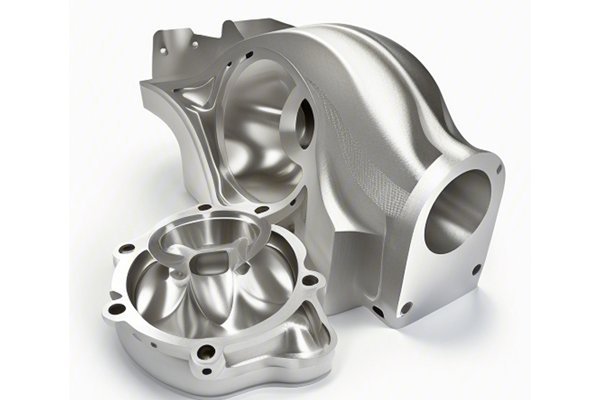In today’s fast-paced manufacturing landscape, finding the right CNC (Computer Numerical Control) machining supplier can feel a bit like searching for a needle in a haystack. With so many players in the game, how do you sift through the options to find a partner that will not only meet your project needs but also help lift your business to new heights? Grab a cup of coffee, and let’s dive into this comprehensive guide that will arm you with the knowledge to navigate this important decision with confidence!
Understanding CNC Machining: The Backbone of Modern Manufacturing
Before we get into the nitty-gritty of selecting a supplier, it’s essential to grasp what CNC machining is all about. This advanced manufacturing technology uses computer-controlled machines to produce precise parts and components from various materials—not unlike a sculptor chiseling away to reveal a masterpiece, but with algorithms in the driver’s seat!
CNC machining encompasses processes like milling, turning, and drilling, resulting in high-quality finished products tailored to specific industries, from aerospace to medical instruments. And as we rely increasingly on these complex machined parts, your choice of supplier can significantly impact product quality, lead times, and costs.
The Importance of Selecting the Right Supplier
So, why is the supplier selection process so crucial? Think about it: Your CNC machining supplier is like the foundation of your house. If it’s unstable, everything built upon it is at risk. A reliable supplier ensures that you receive precisely machined components on time, helping you keep your projects on schedule and on budget.
But how do you know which supplier is right for you? Let’s break it down!
Assess Your Project Requirements
First things first—what do you need? Before you even start scrolling through potential suppliers, it’s essential to figure out your project requirements. Ask yourself these questions:
By having a clear understanding of your needs, you can narrow your search to suppliers that specialize in what you’re looking for.
Research and Compare Suppliers
Now that you’ve got your project requirements laid out, it’s time to embark on your supplier search. Use online directories, forums, and social media to explore various CNC machining providers. Be sure to look for:
Consider compiling a list and comparing their services, but also don’t forget the importance of reputation. Reading reviews and testimonials can give you vital insights into their reliability and quality.
Evaluate Quality Assurance Practices
Quality control is the lifeline of manufacturing. Look for suppliers that have strict quality assurance processes in place—after all, you want your parts to be crafted with the precision of a fine Swiss watch.
Inquire about:
Remember, a company focused on quality will often save you time and money in the long run by reducing the chances of defects or rework.
Communication is Key
Good communication is the bedrock of a successful business relationship. When evaluating potential suppliers, consider their responsiveness and willingness to collaborate.
Engage with them through:
If you feel like your questions are treated dismissively or you’re getting vague responses, it might be a red flag. You want a supplier that treats you like a partner, not just a transaction.
Delve Into Pricing Models
Ah, the delicate art of balancing quality and cost! It’s essential to understand the pricing models of your potential suppliers. Why? Because pricing can vary significantly based on factors like material, complexity, and batch size.
When reviewing quotes, be wary of:
Always weigh price against quality—the cheapest option isn’t always the best option in manufacturing.
Ensure Delivery Reliability
Deadlines can make or break a project. A supplier who consistently misses deadlines can wreak havoc on your production schedules.
Look for:
It’s worth asking for references, so you can hear from other clients about their experiences related to delivery schedules.
Analyze Technology and Equipment
As we stroll further down the supplier evaluation path, let’s talk about the tools of the trade: the machining equipment.
A well-equipped supplier is more likely to produce high-quality parts efficiently. Investigate:
Consider Location and Logistics
Location can play a significant role in your machining supply chain.
Think about:
Ideally, you want a supplier that strikes a balance between proximity and capability.
Trust Your Gut Instinct
Sometimes, choosing a supplier boils down to that intuitive feeling you get when you interact with them.
Ask yourself:
Trust your instincts; a solid, strong partnership can be formed based on mutual respect and understanding.
Conduct a Trial Run
If you’re still uncertain about committing to a supplier, why not start small?
Consider:
Think of it as a first date—before diving into a long-term commitment, it’s wise to see if you’re compatible!
Maintain an Ongoing Relationship
After selecting your supplier, it doesn’t stop there. Maintaining an open line of communication is vital for a successful partnership.
Engage with them regularly:
Remember, a thriving partnership can lead to better prices, prioritization during busy times, and a stronger understanding of each other’s processes and needs.
Conclusion: The Right CNC Machining Supplier Awaits!
In the search for the best CNC machining supplier, remember that knowledge is your biggest ally. By taking the time to assess your needs, research potential suppliers, and ask the right questions, you’re putting yourself in a position to make an informed decision that will positively impact your business.
Hopefully, this guide has illuminated the path ahead and eased the process, allowing you to step confidently into your next CNC machining project. So, roll up your sleeves, get out there, and find that perfect supplier for your manufacturing journey!
Now it’s your turn! What steps will you take to find the ideal CNC machining partner? Feel free to share your thoughts in the comments below!






